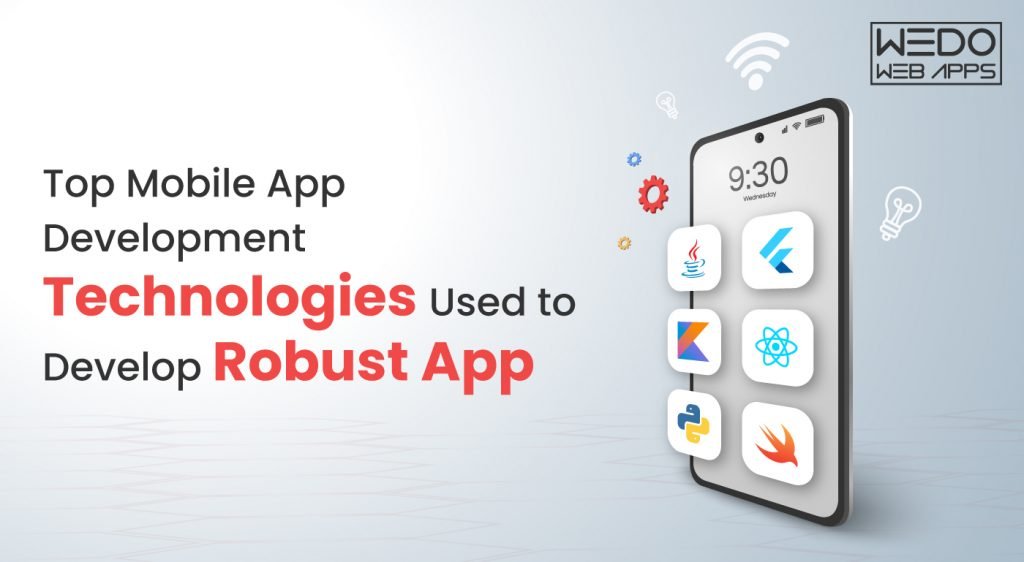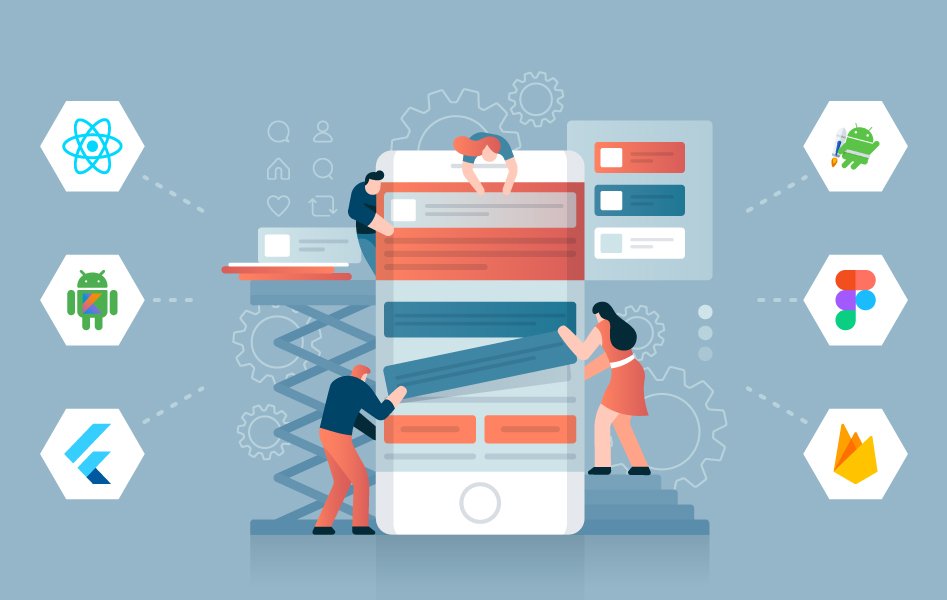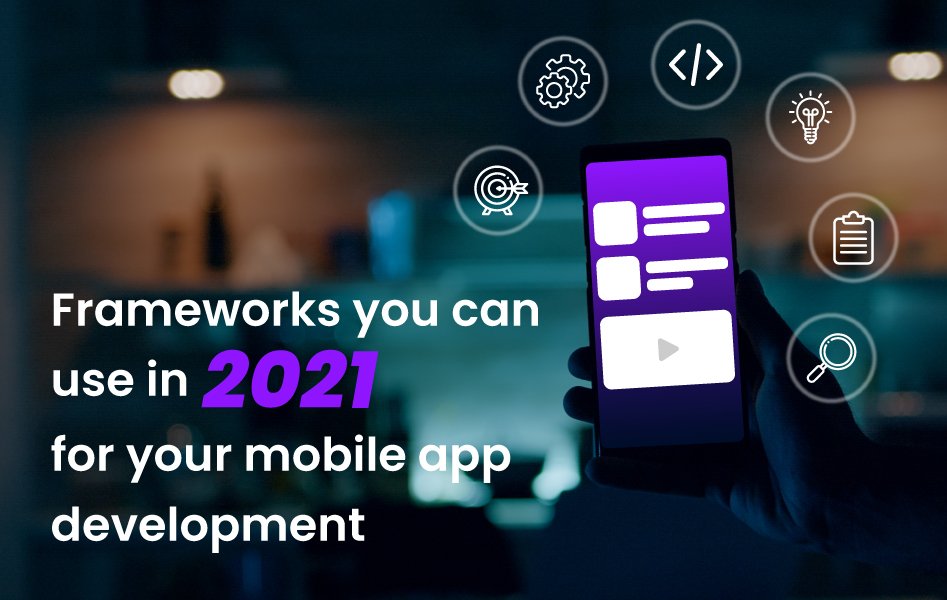16 Aug, 2022 | Mobile App Development
Top Mobile App Development Technologies Used to Develop Robust App

Here is a curated list of programming languages that can serve to be apt for your mobile app development.

- Java: being an old one, java has served to be the official programming language of Android at a time. Custom software development prefers Java over any other programming language for mobile app development. Android app programming services are in favor of Java for their developments. Being the most used language worldwide for technical developments, Java has proven to be of great significance for developers. Popular projects like NASA worldwind, Netflix, Spotify, Linkedin have been built with Java. This is enough evidence to prove the prestige of the Java language.
- Kotlin: currently, the official programming language of Android is Kotlin, as appointed by Google in 2019, in light of the preference of various android app programming services. Providing cross-platform services, Kotlin has proven to be a very useful friend to the developers. The additional effort of putting up a semicolon after every line is eliminated by Kotlin blessing the developers.
- C++: as far as building an app is concerned, an entire application cannot be built on C++. It can be used by the Android app programming services. Mobile app development technologies list down C++ as a crucial component of their endeavors. It can create magnificent apps without compromising the performance and the user experience aspect of the mobile app. It is simple, approachable, easy to use, and a good friend of the developers.
- HTML, CSS, JavaScript: Adobe PhoneGap is the primary framework that can be used to develop an app using languages- HTML, CSS, and JavaScript. These languages aid in providing a seamless experience of app development to the developer. It does not require much coding and programming if Adobe PhoneGap is used.
- PHP: proving to be an easy one for decades now, PHP is an object-oriented language that aids developers in their endeavors. Apps that need integration are best written in this language.
Tools to begin your mobile app development
- PhoneGap: so far, we've already mentioned PhoneGap earlier in this blog. PhoneGap has secured a top position in our list and among the hearts of developers for extensive mobile app development. Also called Apache Cordova, PhoneGap comes across as an open-source framework for mobile app development. PhoneGap employs CSS3, HTML5 and JavaScript. It is used to create native applications on Android, Windows, and even iOS. Combining hybrid and native apps gives the apps developed by PhoneGap a unique nature that's neither truly native nor hybrid. It can be used to create web applications along with mobile applications. Several Android apps programming services use PhoneGap for their customized developments.
- Appcelerator: rhyming with the accelerator, this framework truly hastens the work of android app programming services. New technology in mobile application development is inclusive of Appcelerator for a reason. It curates seamlessly hardware-based apps by using HTML, PHP, JavaScript. Native apps for iOS, Android, or even Windows are characteristic of this framework.
- Rhomobile: mobile app development technologies 2020 has to include significantly the Rhomobile Suite. Being an open-source framework, this is powerful with Rhodes that aids the development of native apps for various platforms. HTML, CSS3, and JavaScript are used by Rhomobile along with Ruby on the Rails for its development procedure. It can be used for development across various operating systems. Be it iOS, Windows, or Android, Rhomobile has it all taken care of.
- WidgetPad: when it comes to choosing the best technology for Android app development, widget pad is the name that pops up. The open-source, cross-platform framework that can write up your app in HTML or JavaScript is a tremendously beneficial technology used by various Android app programming services. Not just this, it lays down an abundance of options to choose from- code editing, distribution, or versioning. Operating systems functional for this one are- iOS, web, and Android.
- MoSync: a mobile app development kit that is open source as well as can be used on multiple platforms, is a boon to the developers. It uses Ruby, JavaScript, Python, and PHP for its development procedure. Combined with Eclipse-based IDE, MoSync allows the development of native mobile apps across various platforms wielding C or C++ language.
Frameworks you can use in 2021 for your mobile app development:

- Flutter: being a new tech in the field, Flutter has passed with flying colors and has become one of the best members of the digital framework sector. It is a new tech in the town. It is cross-platform and uses Dart as its programming language for all developments. Using an uncommon programming language like Dart facilitates the development to be robust, subjected to powerful analysis, fabricated UI, the inclusion of highlights, and provision for fixing bugs in just a matter of seconds. Being an open-source platform by Google, Flutter offers a huge range of plugins that Google supports. It can be used to create apps for Android and iOS systems.
- React Native: with the setup of the big name in the market, React Native has won the hearts of developers over the years. Based on JavaScript, this open-source platform gives satisfactory support to IDEs. Picking up from the name enables the development of native applications for mobile for both android and iOS systems. React a native is similar to React in some ways when it comes to building up mobile apps with JavaScript along with the same design. Apps built here are real and are in no way distinguishable from the ones made up with Objective-C, Swift, or Java.
- Ionic: the name might seem to have missed a letter- 'c' to make this framework an iconic one. Ionic uses HTML 5, CSS3, and JavaScript as combined together to facilitate its developments. This combination is a source of structuring native apps and UIs seamlessly. Ionic has been built ahead of Angular JS and Apache Cordova. As a result, cross-platform mobile apps are now easy to build, maintain and scale with Ionic.
- Xamarin: the best advantage of using Xamarin is that it uses a single code across different operating systems- Android, iOS, Windows, and others using the C# language. This code-sharing benefit does not impact the native experience of the app in any way. Developers are searching for a platform that allows them to have time and effort to develop the same app for different platforms, and Xamarin is the one. The platform-specific capabilities of the operating system are not compromised at any level.
- Native Script: this one also tops the list of most preferred frameworks for iOS and Android developments. NativeScript primarily develops applications in JavaScript with any language that trans-compiles with the same type, such as TypeScript. NativeScript consists of extensive features like Vue.js, Angular integration, Native API re-election, etc. Third parties from Maven, npm.js, and CocoaPods can be repurposed with the help of NativeScript.
- Fargo: popularly known as V-Play Engine earlier, Fargo is the perfect platform for developing mobile apps and gaming apps. Flexibility is one of the major contributions of Fargo to the developers for creating native apps using single code for various systems. These systems can be android, iOS, web, Desktop, and even embedded platforms.
- Mobile Angular UI: with the name suggesting angular js, this open-source framework combines the Angular js along with Bootstrap 3 Syntax. It also includes the missing elements of Bootstrap that give it an extra edge. UI components like Overlays, switches, sidebars, navbars, and morals are characteristic of this platform. It is easy to learn for the developers and provides the provision of using HTML5 to build hybrid mobile apps as well as Desktop apps for various businesses.
Concluding Words
Concluding the above discussion, we can deduce that mobile apps are the most useful thing for this generation. This era is not going to take any risks with technological developments. People today want the latest technology in their daily routine endeavors. Thus, building an application that best serves the needs of the general public becomes a necessity for the businesses that wish to flourish in today's time. For that, choosing the best technology for mobile app development is necessary to have fewer issues and more facilities for the end-users. The mobile app with an enhanced user interface and dynamic functionality makes your journey a success. When looking for an Android app programming services, consider the market demand and the need for its support platform. Here we listed above are some of the most popular mobile application development technologies to help you develop your high-quality mobile applications.Frequently Asked Questions
There are several mobile app development technologies that can be used to develop robust apps, including:
- Native app development: Native app development involves building apps specifically for a particular operating system, such as iOS or Android. It allows for high performance, better user experience, and access to device-specific features.
- Hybrid app development: Hybrid app development combines native and web app technologies to create apps that can run on multiple platforms. This approach allows for cost-effective development and faster time-to-market. Cross-platform app development: Cross-platform app development tools, such as React Native, Xamarin, or Flutter, allow developers to write code once and deploy it across multiple platforms. This approach reduces development costs and ensures consistency across platforms.
- Cloud-based app development: Cloud-based app development involves building apps that leverage cloud infrastructure for hosting and data processing. This approach allows for scalability, flexibility, and cost-effectiveness.
- Internet of Things (IoT) app development: IoT app development involves building apps that communicate with connected devices, such as wearables or smart home devices. This approach enables the creation of innovative and personalized experiences for users.
Startups should consider several factors when deciding which mobile app development technology to use, including budget, timeline, target audience, and app complexity. Native app development is often the best option for apps that require high performance and access to device-specific features. Hybrid or cross-platform app development may be more cost-effective and faster to deploy, but may not offer the same level of performance or customization. Cloud-based app development is best suited for apps that require scalability and flexibility. IoT app development is ideal for apps that leverage connected devices and offer personalized experiences. Ultimately, the choice of technology should align with the startup's goals and values and provide the best possible user experience.

